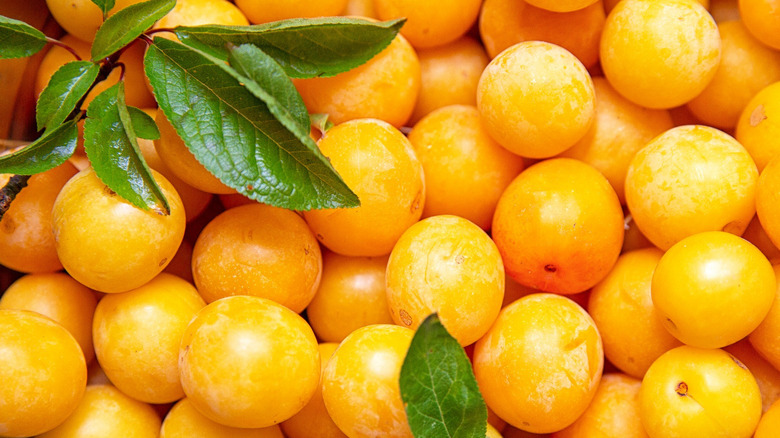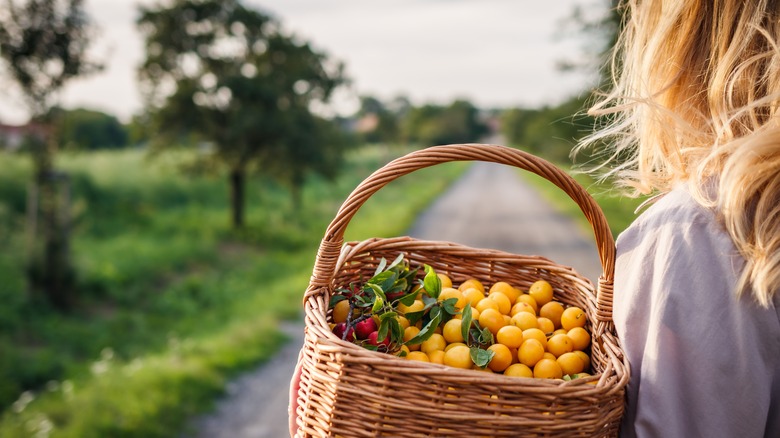The Reason Mirabelle Plums Are (Sort Of) Illegal In The U.S.
When we think of picking out a ripe plum from the produce section, most of us probably think of the familiar purple-hued fruit that is commonplace throughout the country. There is, however, another variety of plum that is decidedly more elusive. Known as Mirabelle plums, the small golden fruits have a mysterious reputation thanks to a long-standing rumor that they are illegal in the United States. Given the relatively limited information available about Mirabelle plums and their legal status, the internet has long swirled with possible reasons for the U.S.'s golden plum ban, including a theory that the plums harbor dangerous diseases, as seen on the r/NoStupidQuestions subreddit.
The reason for the ban on Mirabelle plums is related to an agricultural agreement between the French and U.S. governments. According to the agreement, the plums can only be imported from the Lorraine region of northeastern France (via Minnetonka Orchards), which has led to the fruits being relatively hard to find in U.S. stores. The manufactured scarcity of the fruit may have contributed to the belief that the plums are illegal in the U.S. While Mirabelle plums can technically be imported from other areas of the world, the import ban on Mirabelle plums originating from other regions is designed to help safeguard the French agricultural market.
You can get your own Mirabelle plum tree in the U.S.
While the U.S. and French trade deal on Mirabelle plums also applies to domestic sales of the fruit, growing a Mirabelle tree in your garden is allowed, per Minnetonka Orchards. Even though the import laws surrounding Mirabelles mean that finding a sapling or seeds is considerably more complicated than purchasing an apple tree from your local nursery, finding a sapling is far from impossible for determined gardeners.
Cuttings from Mirabelle plum trees can be purchased from online nurseries, per Gardening Know How and can even be found online for about $60. Mirabelle seeds can also be purchased, but they don't come cheap. The highly sought-after seeds can sell for as much as $220 for a package of 100. Once your Mirabelles have been successfully sourced, the fruits can be grown much like a regular fruit tree. While growing your own Mirabelles for private consumption is perfectly legal, selling them still falls under the FDA's federal ban. This means profiting off your Mirabelles is a definite no-go.
Even though you won't be able to start a thriving Mirabelle plum business, there's still a lot you can do with the plums. Mirabelles are a popular choice for jams and fruit spreads and can even be used to make a plum pie or a traditional French Mirabelle plum.

